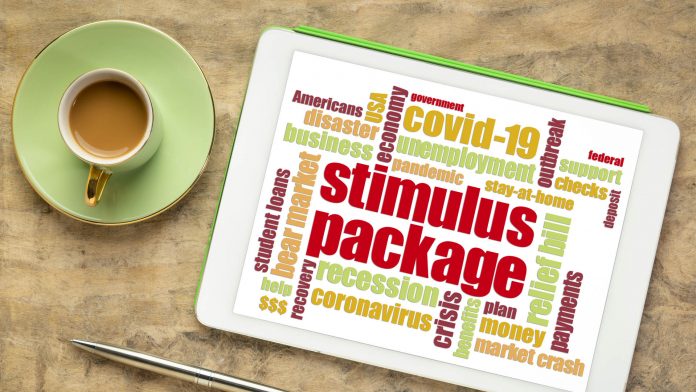Key Highlights
- US Treasury and Federal Reserve stimulus packages not able to prevent huge losses of income, production and wealth
- Huge numbers of businesses in high employment industries likely to disappear altogether or take years to recover
- Likely to take nearly a decade for full employment to return
- Huge increases in public and private debt likely to strangle future growth
James A. Kostohryz, an economic strategist writing for SeekingAlpha, believes that the stimulus packages put forth by the US Treasury and Federal Reserve will not ultimately prevent another massive leg down in US equities. Kostohryz speculates that the bottom of the market could range between 1900 – 1500 on the S&P500 Index and that any eventual recovery, if there is one, would likely be “prolonged and painful.”
Download Your FREE Ultimate Agent Survival Guide Now. This is the exact ‘do this now’ info you need. Learn NOW How to Access All The Bailout Program Cash You Deserve. Including Unemployment and Mortgage Forbearance Plans. To Access the Ultimate Agent Survival Guide Now Text The Word SURVIVAL to 47372. 4 Msgs/Month. Reply STOP to cancel, HELP for help. Msg&data rates may apply. Terms & privacy: slkt.io/JWQt
Kostohryz sees this economic crisis as being the most severe since the Great Depression. Other experts are teetering on estimates that this crisis could be even more severe.
Goldman Sachs, Bank of America, Morgan Stanley and JPMorgan Chase all now agree that the US GDP will contract anywhere from -30%-40% in Q2 2020, the largest quarterly contraction in all of US economic history. Unemployment is anticipated to peak at -20%-30%. Additionally, business bankruptcies are expected to skyrocket to historic levels.
Kostohryz estimates that, at the earliest, it will take the economy until Q4 2021 to reach prior level of peak output and that it will take until at least 2030 for full employment to be reached.
The Fed has already announced its emergency packages worth up to $2.3T to aid small and mid-sized businesses, loans to state and local governments, purchases of various types of high-yield bonds, collateralized loan obligations and commercial mortgage-backed securities. Even these efforts are likely to be augmented with more rescue programs and many more trillions of dollars.
Here are Kostohryz’s reasons that fiscal and monetary stimulus programs will not be sufficient:
- Loss of income due to unemployment
- Loss of income due to fewer hours worked
- Reductions in salaries and wages
- Loss of tips, commissions, bonuses and incentive-based compensation
- Loss of income by large companies and owners which, of course, lead to reduced dividends
- Loss of income by small businesses and owners
Curtailed personal expenditures and the reduction in US corporate revenue and earnings will be profound. That reduced income is likely, perhaps certainly, to dampen even the idea of buying equities, particularly in an environment of fear of (more) loss and financial uncertainties.
Individuals and large/small businesses will want to save more. And more savings translate into reduced spending…reduced spending translates into there being less income and less credit usage put back into the economy, particularly on non-essential expenditures. Clearly the Fed cannot force individuals and business to spend on hiring and retraining to “end” unemployment just as the Fed cannot force individuals and businesses to not fail.
Some of the ways Kostohrz believes that wealth in the US economy will diminish include:
- Destruction in the value of equity due to insolvency and large reductions in long-term intrinsic value
- Destruction in the value of debt due to massive quantities of defaults and massive losses
- Destruction in the value of real property due to loss of demand and loss of income by renters and leaseholders
Both liquidity and solvency problems, Kostohrz believes, are in our economy’s future. And, the massive increases in public and private debt brought about by this pandemic crisis will most definitely overshadow future potential investment growth and consumption.
None of us wants to hear or read any of this but in Kostohrz’s view, all of this is inevitable. Never has this country’s economy endured a shock as deep, as lightening fast and as pervasive in all parts of the country as this COVID-19 pandemic shock. Best to open your eyes and mind to this unprecedented economic crisis and its aftermath.
Thanks to SeekAlpha’s James A. Kostrohryz.
Also read: Could the Fed Go Further? Into the Stock Market?, Senate Passes Legislation to Provide Additional $484B Funds for COVID Small Business Relief, Will $2.2T CARES Act Sustain Economy or Are Relief Provisions Even Barely Enough?

























